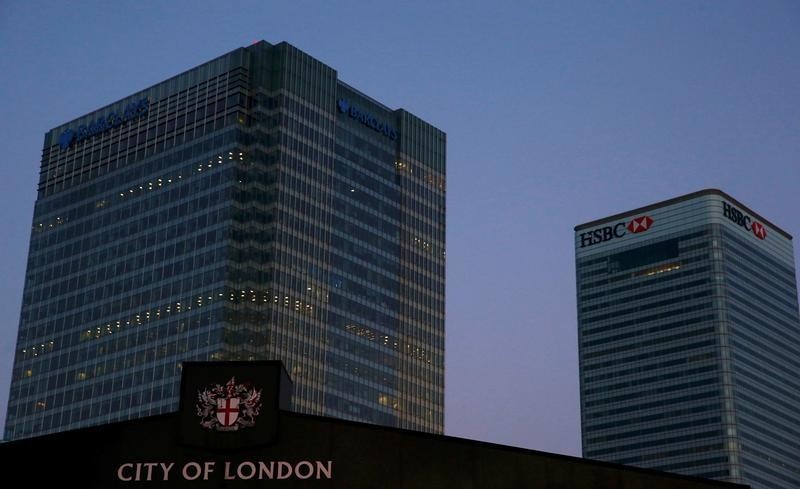By Andrew MacAskill and Lawrence White
LONDON (Reuters) - British banks' closure of hundreds of branches in the last three years has more than halved lending to small businesses in the areas affected, research on Thursday showed, ahead of a debate in parliament about the impact of the cuts.
Britain's biggest banks HSBC (L:HSBA), Barclays (L:BARC), Royal Bank of Scotland (L:RBS) and Lloyds Banking Group (L:LLOY) have been steadily shrinking their branch networks to cut costs while investing in online and mobile banking services.
Research by campaign group Move Your Money suggested many customers were losing out as a result, with lending to small local businesses down by 63 percent in towns and villages that had lost a bank branch.
The impact on communities following the closure of their last bank branch was even more striking, with a 104 percent drop in lending growth to small businesses, according to the research, based on data from the British Bankers' Association. "The UK's biggest banks are abandoning communities across the country, and today for the first time we can see the incredible damage that is happening," Fionn Travers-Smith, campaign manager for Move Your Money, said.
The impact of branch closures on lending in specific areas had not been closely tracked until the British Bankers' Association began releasing information in 2013 about local lending patterns.
This marked a government push to increase transparency and encourage competition between banks. The Move Your Money study is one of the first to make use of that data to map how the closures have affected lending.
Politicians from the main political parties have arranged to debate the issue in parliament later on Thursday and are expected to demand a tightening of the rules that govern branch closures and that banks do more to help customers affected.
RBS, Lloyds, Barclays and HSBC did not respond to requests for comment.A spokesman for the British Bankers' Association said banks have signed up to protocols aimed at minimizing the impact of branch closures, including partnering with post offices to offer services and carrying out impact studies before closures."Banks are determined to leave no one behind," he said.
Reuters earlier this month reported that Britain's largest banks are disproportionately closing branches in the lowest-income areas while expanding in wealthier ones.
The analysis found more than 90 percent of the branch closures were in areas where the median household income is below the British average of 27,600 pounds.
Banks could face more pressure on costs after Britain's vote last week to leave the European Union, potentially creating the biggest upheaval for the country's banking industry since the 2007-2009 financial crisis.
The vote for Brexit has led to predictions of a recession and earnings downgrades that hit bank shares.
Academics and campaign groups say Britain should enact tougher legislation like in the United States which requires banks to maintain branches and lending in poorer areas.

The U.S. Community Reinvestment Act of 1977 is designed to reduce discriminatory lending against low-income areas by requiring banks to lend in communities where they are chartered. The U.S. law also has the power to block opening of new branches elsewhere if a bank does not comply.